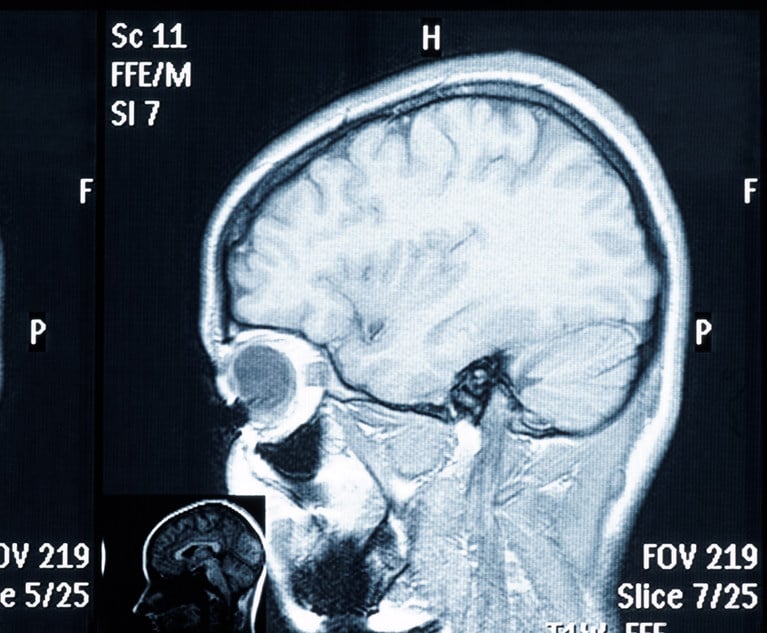Courts Must Fine-Tune Eminent Domain's Application to Shopping Malls and Office Parks
We support the expansion of the statute because shopping malls and office parks are vulnerable to decay amounting to blight, but courts will have to define case by case what vacancies are "significant".
November 10, 2019 at 10:00 AM
3 minute read
 shutterstock
shutterstock
The New Jersey Constitution authorizes government to take private property and redevelop it for public use upon payment of "just compensation" to the owners (eminent domain). 8:3-1. Whether or not a property is in need of redevelopment is governed by the Local Redevelopment and Housing Law, N.J.S.A. 40A:12A-5. Several subsections of that statute delineate the conditions which, if present, will be deemed to describe an area in need of redevelopment. Until recently, subsection (b) stated that an area could be determined to be in need of redevelopment upon, "the discontinuance of the use of buildings previously used for commercial, manufacturing, or industrial purposes; the abandonment of such buildings; or the same being allowed to fall into so great a state of disrepair as to be untenable."
New Jersey has experienced an increasing number of distressed shopping centers and office parks. In August, the governor signed a bill which expanded the criteria in subsection (b) for the redevelopment determination. It now reads, "The discontinuance of the use of a building or buildings previously used for commercial, retail, shopping malls or plazas, office parks, manufacturing or industrial purposes; the abandonment of such building or buildings; significant vacancies of such building or buildings for at least two consecutive years; or the same being allowed to fall into so great a state of disrepair as to be untenable."
Before the amendment of subsection (b), shopping malls and office parks might have been able to qualify as in need of redevelopment if they satisfied the criteria of other subsections of the statute. However, the Legislature decided to expand the language so that even if a shopping mall or office park did not meet the criteria of any of the other subsections of the statute, if they were abandoned or the use of a component building or buildings was discontinued for at least two consecutive years, redevelopment was legally permitted.
We support the expansion of the statute to include shopping malls and office parks because trends in the economy have shown that both types of property are vulnerable to decay amounting to blight. The expansion of the definition of blight beyond outright abandonment to include "significant vacancies" for two years is more problematic. The courts will have to define case by case what vacancies are "significant" in the different contexts of enclosed malls, strip malls, big box stores and office development. They will have to be wary of using a declaration of blight simply to change management when it appears that some other owner might do a better job of exploiting a property. Similar to Gallenthin Realty Development Inc. v. Borough of Paulsboro, 191 N.J. 344 (2007), moreover, the expansion of the definition of blight to include significant vacancies over a limited period raises the question of whether temporary vacancy constitutes deterioration or stagnation within the limits of the Constitution's Blighted Areas Clause.
This content has been archived. It is available through our partners, LexisNexis® and Bloomberg Law.
To view this content, please continue to their sites.
Not a Lexis Subscriber?
Subscribe Now
Not a Bloomberg Law Subscriber?
Subscribe Now
NOT FOR REPRINT
© 2025 ALM Global, LLC, All Rights Reserved. Request academic re-use from www.copyright.com. All other uses, submit a request to [email protected]. For more information visit Asset & Logo Licensing.
You Might Like
View All
The End of Innocence? DEP’s End Run Around ‘All Appropriate Inquiry’ Spill Act Protections
10 minute read

Trending Stories
- 1States Accuse Trump of Thwarting Court's Funding Restoration Order
- 2Microsoft Becomes Latest Tech Company to Face Claims of Stealing Marketing Commissions From Influencers
- 3Coral Gables Attorney Busted for Stalking Lawyer
- 4Trump's DOJ Delays Releasing Jan. 6 FBI Agents List Under Consent Order
- 5Securities Report Says That 2024 Settlements Passed a Total of $5.2B
Who Got The Work
J. Brugh Lower of Gibbons has entered an appearance for industrial equipment supplier Devco Corporation in a pending trademark infringement lawsuit. The suit, accusing the defendant of selling knock-off Graco products, was filed Dec. 18 in New Jersey District Court by Rivkin Radler on behalf of Graco Inc. and Graco Minnesota. The case, assigned to U.S. District Judge Zahid N. Quraishi, is 3:24-cv-11294, Graco Inc. et al v. Devco Corporation.
Who Got The Work
Rebecca Maller-Stein and Kent A. Yalowitz of Arnold & Porter Kaye Scholer have entered their appearances for Hanaco Venture Capital and its executives, Lior Prosor and David Frankel, in a pending securities lawsuit. The action, filed on Dec. 24 in New York Southern District Court by Zell, Aron & Co. on behalf of Goldeneye Advisors, accuses the defendants of negligently and fraudulently managing the plaintiff's $1 million investment. The case, assigned to U.S. District Judge Vernon S. Broderick, is 1:24-cv-09918, Goldeneye Advisors, LLC v. Hanaco Venture Capital, Ltd. et al.
Who Got The Work
Attorneys from A&O Shearman has stepped in as defense counsel for Toronto-Dominion Bank and other defendants in a pending securities class action. The suit, filed Dec. 11 in New York Southern District Court by Bleichmar Fonti & Auld, accuses the defendants of concealing the bank's 'pervasive' deficiencies in regards to its compliance with the Bank Secrecy Act and the quality of its anti-money laundering controls. The case, assigned to U.S. District Judge Arun Subramanian, is 1:24-cv-09445, Gonzalez v. The Toronto-Dominion Bank et al.
Who Got The Work
Crown Castle International, a Pennsylvania company providing shared communications infrastructure, has turned to Luke D. Wolf of Gordon Rees Scully Mansukhani to fend off a pending breach-of-contract lawsuit. The court action, filed Nov. 25 in Michigan Eastern District Court by Hooper Hathaway PC on behalf of The Town Residences LLC, accuses Crown Castle of failing to transfer approximately $30,000 in utility payments from T-Mobile in breach of a roof-top lease and assignment agreement. The case, assigned to U.S. District Judge Susan K. Declercq, is 2:24-cv-13131, The Town Residences LLC v. T-Mobile US, Inc. et al.
Who Got The Work
Wilfred P. Coronato and Daniel M. Schwartz of McCarter & English have stepped in as defense counsel to Electrolux Home Products Inc. in a pending product liability lawsuit. The court action, filed Nov. 26 in New York Eastern District Court by Poulos Lopiccolo PC and Nagel Rice LLP on behalf of David Stern, alleges that the defendant's refrigerators’ drawers and shelving repeatedly break and fall apart within months after purchase. The case, assigned to U.S. District Judge Joan M. Azrack, is 2:24-cv-08204, Stern v. Electrolux Home Products, Inc.
Featured Firms
Law Offices of Gary Martin Hays & Associates, P.C.
(470) 294-1674
Law Offices of Mark E. Salomone
(857) 444-6468
Smith & Hassler
(713) 739-1250







